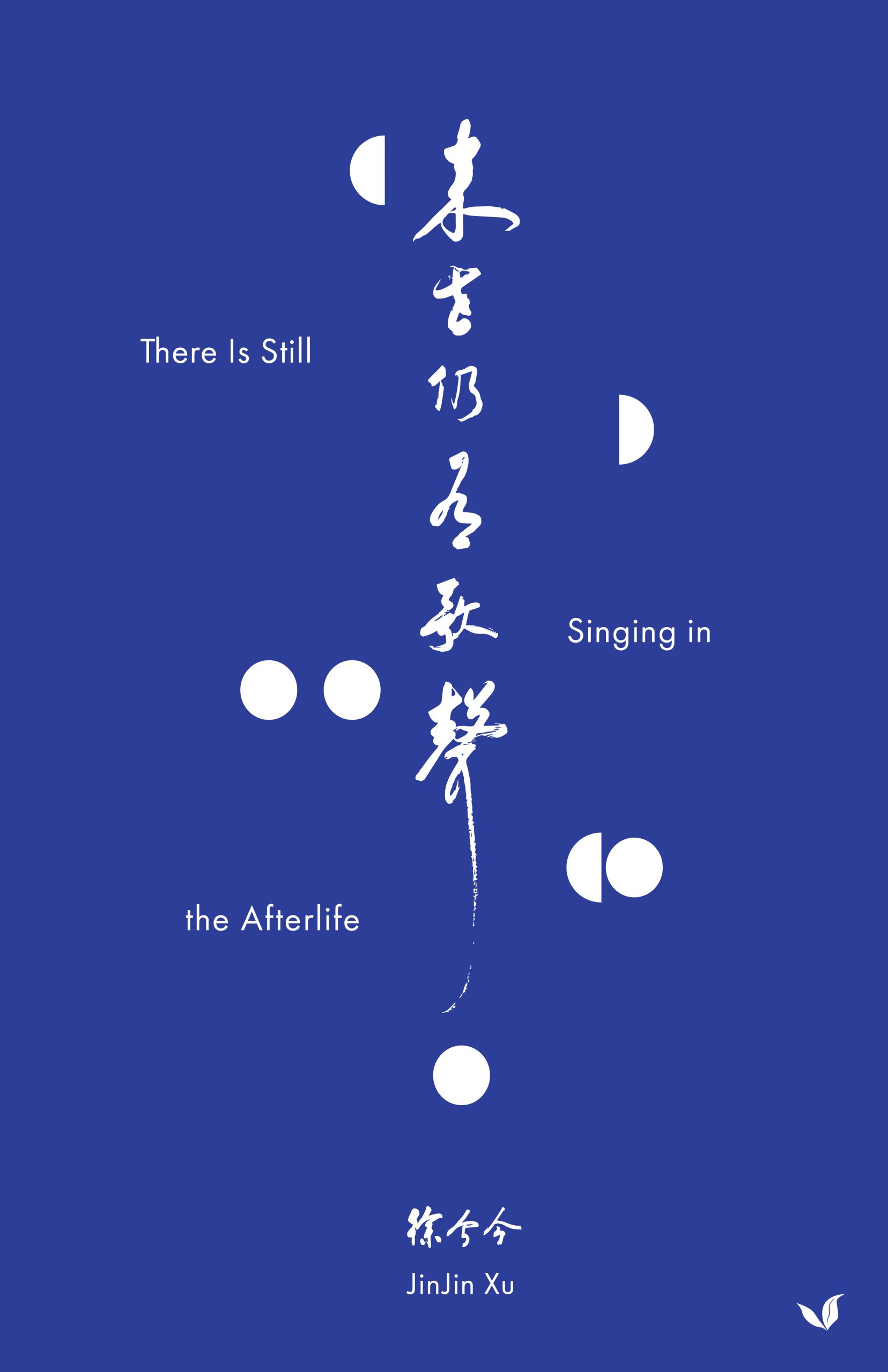An elegiac illumination of personal and political histories.
We are pleased to present one of the winners in our inaugural Own Voices Chapbook Prize, There Is Still Singing in the Afterlife by poet JinJin Xu.
An elegiac illumination of personal and political histories misremembered and censored, There Is Still Singing in the Afterlife is animated by the intimate language of spirits—living, loved, and gone—singing to us from the hereafter.
A poet of deep noticing, JinJin Xu interrogates the nature of witness and memory, taking seriously the consequence of confession in a foreign land, in a language not her own. Xu grapples with a forbidden language—blending the lyric with confession and erasure to sing the unspeakable, to open our eyes to seek the light. This is a stellar debut from a poet you should watch out for.
About the Book
There Is Still Singing in the Afterlife is one of two winning manuscripts from Radix Media’s Own Voices Chapbook Prize, established in 2020. The prize is dedicated to the discovery of two timely, urgent, and interrogative chapbook-length poetry collections from debut poets of color. It is the latest title in Radix Media’s publishing program, which we launched in April 2018 with our anthology Aftermath: Explorations of Loss & Grief. For more information on our titles, see our books page.
The Author
JinJin Xu is the 2020 winner of the Poetry Society of America’s George Bogin Memorial Award. She has received honors from Southern Humanities Review, Tupelo Press, and the Thomas J. Watson Foundation. Her films have exhibited at Berlin’s Harun Farocki Institute and NYC’s The Immigrant Artist Biennial. Born and raised in Shanghai, she received her BA from Amherst College and is currently an MFA candidate at New York University, where she received the Lillian Vernon fellowship and teaches hybrid ballet/poetry workshops.
Find more of her work at jinjinxu.com.
Publication Date: November 20, 2020
ISBN: 978-1-7340487-2-8
Format: Saddle-stitched chapbook, 48 pages, 8.5″ x 5.5″
WHAT PEOPLE ARE SAYING
“Reader, you are lucky to have the award-winning chapbook of JinJin Xu before you. These superb poems resonate with personal and cultural intimacy. JinJin Xu writes with the insight and skill of a veteran poet, a doyen, a griot. Her lines open and breathe on the page as they do in the mind and heart. There Is Still Singing in the Afterlife is inventive, linguistic, ambitious, tender, wise, brave. This fabulous chapbook may be a collector’s item someday.”
— Terrance Hayes, American Sonnets for My Past and Future Assassin
“There Is Still Singing in the Afterlife is a demanding, deeply felt and formally inventive constellation of poems. Resisting the expectations of what poetry should look like, the text rearranges what we know of family, country, and language.”
—Aria Aber, Hard Damage
“The way family pervades every aspect of our lives, the way we remain children forever, the way we can never transcend our bodies, the way some people really do write their poems in their own blood, the way we can move to a new country and become masters of its language and poetry and still never be set free from the grasp of our homes, the way the dead refuse to leave us, the way there is still singing in the afterlife, these are only some of the ways JinJin Xu writes sharp, beautiful and genre-threatening poems in this ridiculous time and place. Listen to her quiet, insistent voice; you’ll learn something.”
— Matthew Rohrer, A Green Light
“JinJin Xu is writing poems that aren’t like other poems, poems that enact a sacred-feeling disorientation and then arrive at specific ends, poems that wind their way intoxicatingly to weighty and sobering truths. Hello, surprise. Hello, newness. ‘When I say words out loud they become real,’ Xu writes. And to that statement I raise my hands in praise. Xu is part of the very bright future of poetry. Thankfully for us, the future is happening now.”
— Carrie Fountain, Instant Winner: Poems
“At the center of There Is Still Singing in the Afterlife is JinJin Xu’s lyric voice: it has a depth and deftness that is exhilarating. It is truly marvelous how Xu weaves the intimacy of a contemporary speaker and her family into a poem-tapestry of history, literature, and ghosts. From Mao’s red book to the red dust that lies in the wake of a lost generation, the scope and emotional register of this chapbook is devastating.”
— Sally Wen Mao, Oculus
“JinJin Xu’s There Is Still Singing in the Afterlife is a generational elegy of both wide and close frames. Xu’s poems ask where grief swims beneath social and historical forces of silence; they float across languages and their modes of meaning against death, against the silence we all most wish to reach through.”
— Yanyi, The Year of Blue Water


